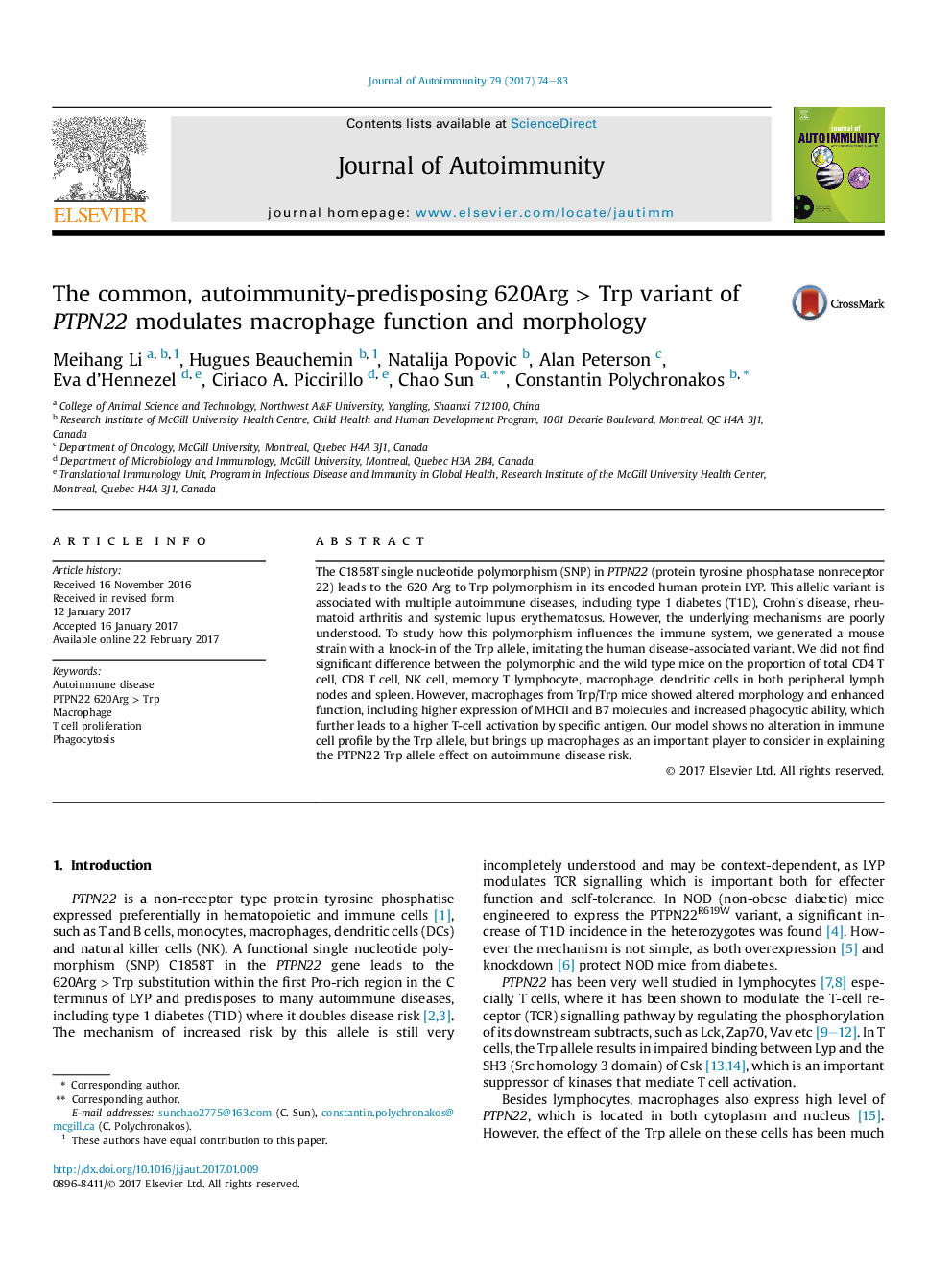| Article ID | Journal | Published Year | Pages | File Type |
|---|---|---|---|---|
| 5667886 | Journal of Autoimmunity | 2017 | 10 Pages |
â¢PTPN22 619 Arg > Trp polymorphism does not change immune cell profile in C57/BL6 mice.â¢PTPN22 619 Arg > Trp modulates macrophage morphology and cytokine expression.â¢Macrophages with the PTPN22 619 Trp genotype more potently activate T cells.â¢PTPN22 619 Trp macrophages exhibit stronger phagocytic ability and higher expression of MHCII/B7 molecules.
The C1858T single nucleotide polymorphism (SNP) in PTPN22 (protein tyrosine phosphatase nonreceptor 22) leads to the 620 Arg to Trp polymorphism in its encoded human protein LYP. This allelic variant is associated with multiple autoimmune diseases, including type 1 diabetes (T1D), Crohn's disease, rheumatoid arthritis and systemic lupus erythematosus. However, the underlying mechanisms are poorly understood. To study how this polymorphism influences the immune system, we generated a mouse strain with a knock-in of the Trp allele, imitating the human disease-associated variant. We did not find significant difference between the polymorphic and the wild type mice on the proportion of total CD4 T cell, CD8 T cell, NK cell, memory T lymphocyte, macrophage, dendritic cells in both peripheral lymph nodes and spleen. However, macrophages from Trp/Trp mice showed altered morphology and enhanced function, including higher expression of MHCII and B7 molecules and increased phagocytic ability, which further leads to a higher T-cell activation by specific antigen. Our model shows no alteration in immune cell profile by the Trp allele, but brings up macrophages as an important player to consider in explaining the PTPN22 Trp allele effect on autoimmune disease risk.
